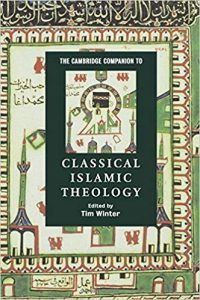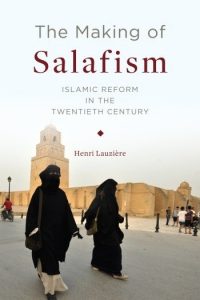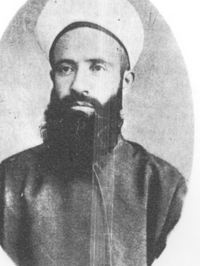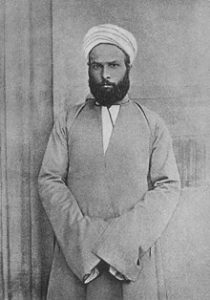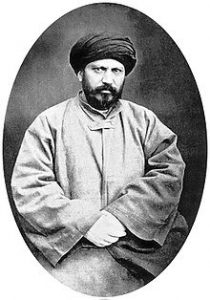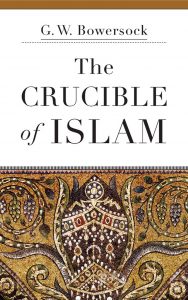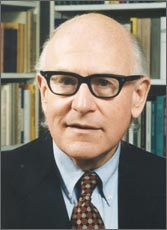
A response to Robert R. Reilly’s book The Closing of the Muslim Mind: How Intellectual Suicide Created the Modern Islamist Crisis. Last I year I published then took down an early version of this essay. This is the updated version (also published as chapter 3 of my book An Intelligent Person’s Guide to Understanding Islam and Muslims).
In his essay “The Problem of Islamic Decadence”, the British historian J. J. Saunders (1910 – 1972) mentions the many theories that Westerners have proposed to explain why Muslims went from being the all-powerful rulers of the world to being backward and politically weak.
Considering Islamic civilization a weak and backward one is a relatively new thing. Saunders writes:
Not until the Age of Enlightenment did the West awake to the fact that its enemy and former mentor had slipped so far behind: only then were attempts made to account for this decline. Up to the end of the seventeenth century Islam presented the appearance of great strength and viguor, at least politically: the three leading Muslim States, the Ottoman Empire, Safavid Persia and Mogul India, ranked among the world’s great powers, and even the Sharifian kingdom of Morocco was treated with respect by Christian nations as late as the age of Louis XIV. Around 1700 there was a noticeable change. The final repulse of the Turks from Vienna (1683), the Christian reconquest of Hungary, and the Peace of Carlowitz (1699), registered the unmistakable decay of Ottoman might. The death of Awrangzib (1707) was followed by the rapid disintegration of the Mogul Empire. The fall of the Safavid dynasty (1722) ended the political greatness of Persia.[1]
Among undeniable signs of the decline of Islamic civilization were the fact that the Mughal emperor Aurangzeb needed a Dutch passport to perform the Hajj in 1706,[2] and the fact that the Ottomans were so geographically ignorant that they were taken aback by the appearance of a Russian fleet in the Mediterranean in 1770, not knowing that the Baltic Sea was connected to the Atlantic Ocean according to Saunders.[3] As early as 1670, a European traveler through Persia and India noticed the lack of intellectual curiosity and the low technological sophistication of these lands.[4]
The French intellectuals Montesquieu (1689-1755) and Voltaire (1694-1778) and the English historian Edward Gibbon (1737-1794) blamed government tyranny and mismanagement for the state of Muslim societies.[5] Ernest Renan, one of the most prominent intellectuals of the 19th century, blamed Islamic theology. According to Renan:
Only by freeing themselves from the paralysing grip of the Koran and the Law could the Muslim people hope to contribute again to the general advance of civilisation.[6]
Since Renan, the idea that Islam causes backwardness has been thoroughly taken up by the West’s intelligentsia so that it is taken for a fact these days—despite its banality and its sociologically amateur understanding of the functioning human societies. The works of Samuel Huntington and Bernard Lewis are a more sophisticated restatement of Renan’s ideas. One of the latest contributions to this field of Islam-blaming is The Closing of the Muslim Mind: How Intellectual Suicide Created the Modern Islamist Crisis by Robert R. Reilly.[7] This essay focuses on a critique of Reilly’s writing while introducing an alternative, and far more plausible, explanation.
Reilly argues that the Islamic theological doctrine of predestination and other Ash’arite—the dominant theological framework within Sunni Islam—teachings have driven Muslims to a fatalistic, anti-intellectual dead-end, a “suicide” as Reilly describes it, quoting Fazlur Rahman (1919 – 1988), the famous Pakistani Islamic intellectual.
Reilly’s thesis is that scholarly theological positions hamper Muslim curiosity and intellectual achievement. He asserts that religious scholars and their doctrines have the power to put a damper on the freedom of thought among Muslims. In his rather depressing vision, intelligent Muslims are almost mind-controlled by a fatalistic Islam, and if only they would abandon this version of Islam, they would, as if by magic, acquire the ability to stop being narrow-minded and develop into full human beings. As is sadly typical of Western discourses about Islam, Reilly compares the very worst examples of the people of the Middle East with the best of the West, and from this highly skewed comparison he concludes that Islam must be the reason why the Middle East is not doing as well as the West.
If Reilly is right that the presently dominant version of Islam causes narrow-mindedness and is tantamount to “intellectual suicide”, then we would expect the intellectual elite of the Muslim world to be severely affected by this suicidal doctrine. Men and women who would have been scientists and inventors in a different reality would instead be narrow-minded and anti-intellectual worshipers at the feet of the religious scholars. It sounds like the set-up for a good story, but is there any reality to this scenario? The question to ask is: are city-dwelling, cosmopolitan Muslims hampered in their intellectual curiosity by theological doctrines?
Reilly’s answer should be yes. These people would be responsible for intellectual progress; but there is supposedly little intellectual progress, therefore these people are instead narrow-minded anti-intellectuals who need to be freed from harmful Islamic doctrines.
In the Reilly’s imagination, Muslim hordes listen to their religious scholars then zealously go on to implement whatever backward thing said scholars recommend.
But in the world of reality, like George Eliot’s Christians and George Orwell’s proletarian Catholics, Muslims politely listen to the preachers at the Friday sermons, then go out to think whatever they themselves choose to think. If the sermon makes sense within their personal, familial and cultural conceptual frameworks, they may be motivated to slightly change their behavior in response to it. And if it did not survive this critique, the content will simply be ignored. And if a preacher insults their intelligence or conscience one too many times, they will simply stop attending their sermons and find another mosque to go to (if one is available). If not, they may go to the sermon as late as possible to catch the obligatory performance of the communal prayer after sermon ends, as I have seen some Muslims do.
Reilly writes:
There are people in Saudi Arabia today who still do not believe man has been on the moon. This is not because they are ignorant; it is because accepting the fact that man was on the moon would mean also accepting the chain of causal relationships that put him there, which is simply theologically unacceptable to them.
Reilly quotes things like the above, thinking that they are somehow representative of all Muslims, when:
- Saudi’s cosmopolitan Muslims would find that just as laughable as any Westerner.
- There are perhaps tens of thousands of Americans who do not believe the moon landings ever happened. A quick search on Amazon.com for “moon landing hoax” brings up dozens of books.
- Saudi Arabia, this supposed capital of Islamic backwardness, now produces more scientific research[8] than Hungary, Thailand, New Zealand, Israel or Romania.[9]
Whether Saudi’s Wahhabi preachers dislike the country’s research institutions or not, the Muslim population not only tolerates them, but is proud of them and their achievements. In 2010, the Saudi website al-Weeam reported that a female Saudi student had come first in her class at Southampton University in England. The article led to 88 comments, most of which praised her achievement. A few of the usual suspects were present to mention how she was suffering moral decay by being in England, but these were the exception “that proves the rule”; most readers found positive value in her achievement and expressed pride in it.[10]
An illustration of the independence of the Muslim mind from religious scholars is the way Iran’s middle class rejects the Shia practice of temporary marriage, rightly recognizing it as legalized prostitution[11], despite scholarly approval for it.
Egypt is a very conservative country, yet its scientific output has increased from 4,515 scientific research papers published in 2005 to 17,300 in 2016. It is common to brush such data aside by saying this progress is happening despite Islam. Even if the research institutions that are producing these papers are staffed by devout Muslims, this is brushed aside by saying that they are not really Muslim in their hearts, that they have abandoned parts of Islam and this enables them to be rational and human. In this way, all actual cases of Muslims acting rationally, acting as intelligent and modern creatures, are dismissed in order to maintain the narrative that Islam promotes irrationality.
Western pundits preemptively close all doors to data that would prove their theses wrong; any data about real Muslims behaving intelligently, rationally and humanistically is inadmissible to them (they are not real Muslims, or they are doing what they do despite Islam), while all data showing otherwise is admissible.
Reilly, as many other pundits, considers Wahhabism somehow a natural form of Islam that has the danger of spreading to all Muslim minds. This is despite the fact it is likely only practiced by less than 1% of the world’s Muslims, largely sponsored by Saudi Arabia, and despite the fact that the vast majority of Muslims strongly dislike it. When the Wahhabi Ibn Saud conquered Mecca and Medina with the help of British funding[12] in the 1920’s, the people of these two cities so strongly disliked Wahhabi preachers that he had to import clerics from Egypt.[13]
Reilly has to focus on Wahhabism because he is trying to explain why Islam is causing so much terrorism.[14] Like almost all of those who try to answer this question, he tries to find the reasons for Islamic terrorism within Islamic cultures and societies, ignorant of the fact Islamic terrorism is very much a 20th century phenomenon triggered by colonial rule in Egypt, the Jewish ethnic cleansing of Palestine[15], and the US arming, training and funding of the Wahhabi Taliban and al-Qaeda organizations in the 1980’s in order to weaken the Soviet Union.[16]
Instead of trying to look blindly grope inside Muslim minds for the causes of Islamic terrorism, Reilly would probably do much better to call up a few of his friends at the Pentagon.[17]
The decline of Islamic science
The rise of the rationalist Mu’tazilites coincided with the rise of Islamic science in the 9th century, and the fall of the Mu’tazilites and the rise of Ash’arites in the 11th century coincided with the fall of Islamic science. Reilly considers it his most important contribution to the discussion of the decline of Islam to suggest that the abandonment of Mu’tazilite doctrine and the adoption of the less intellectual Ash’arite doctrine was a cause for the decline and fall of Islamic civilization. For him this correlation equals causation.
During the period of decline that started from 900 CE onward, the Abbasid empire suffered repeated Turkic invasions. The same process that caused the decline and fall of the Roman Empire (centuries of barbarian invasions causing a breakdown in urban networks of professionalism and trade) happened to Islam from the 10th century to the 15th century. The West was spared this process during the same period so that it enjoyed a Renaissance in peace just as the Turkic Mahmud of Ghazni was carrying on his slaughter of cosmopolitan and productive Iranian cities.
Baghdad was the center of Abbasid science and philosophy, which was largely conducted by Iranians coming from the great Persian-speaking cities of Central Asia. These cities were one by one decimated by the Turkic and Mongol invasions, and Baghadad itself never recovered from the destruction of its irrigation system by the Mongols.[18] Two centuries after the Mongols, the Turkic warlord Tamerlane re-destroyed Baghdad even more thoroughly than the Mongols had managed.[19]
Russia and Poland, the only significant areas of the West that suffered Mongol and Turkic invasions during the same period, were until recently just as famous for being backward and undeveloped as the Muslim lands, despite being Christian lands. John Saunders writes:
Since the conversion of Northmen and the Magyars around 1000, Western Europe had been completely free from this scourge. The Mongols, who devastated Russia as thoroughly as they did Western Asia, got as far as Silesia in 1241 before their leaders were obliged to return home in order to elect a new Great Khan. Had they pressed westwards to the Rhine and the Atlantic and overrun Germany, Italy and France, which they could probably have done with ease, there would have been no Renaissance, and the West, like Russia, would have taken centuries to reconstruct the shattered fabric of its civilisation. Western Europe has perhaps never properly appreciated its good fortune in escaping conquest by the last and most dreadful of the invaders from the steppes of Asia. It emerged from the Dark Ages in the eleventh century, at the very time when the first barbarian blows were being struck at the world of Islam, and it was able from then onwards to build up a new civilisation on the Atlantic fringe of the Eurasian continent uninterrupted by the raids and devastations of Turks or Mongols or Bedouins.
Now that the destruction brought by the barbarian invasions has been repaired and trade has resumed, we should take another look at Muslim societies and see whether things are changing or not. Islam has not changed greatly in the past 200 years. Muslims continue to consider the Quran the literal Word of God and the hadith collections of al-Bukhārī and Muslim as canons of the faith. If Renan, Lewis and Reilly are right that Islamic theology is causing a closing of the Muslim mind (John Saunders, too, considers Islam a potential negative influence), we would expect little change to have taken place after the restoration of peace, because they tell us that it is the Muslims’ Islamic beliefs that is making them backward and decadent, not something outside of Islam, such as historical circumstances.
Today, throughout the Muslim world there is great interest in philosophy, in science, in literature. The top 6 Muslim-majority countries in terms of population (Indonesia, Pakistan, Bangladesh, Egypt, Iran and Turkey) have increased their scientific output by three to ten times in the past ten years alone. Iran now publishes more scientific research papers in peer-reviewed journals than Sweden, Poland or Belgium. Muslims are sending their children to Western-inspired universities by the millions. In Iran and Egypt, most Western bestsellers are translated and published a year or two after their publication in the West. It is breathtakingly ignorant to color one’s understanding of the Muslim societies of today by prejudices inspired by the decaying societies of 1000-1900. Islamic theology has remained the same, yet everything else is changing.
The Scientific Revolution was the edge of edges that enabled Europe to rule the world until the year 2000. It has only been in the past 20 years (since the 1990’s) that the nations outside of Europe, Muslim and non-Muslim, discovered the importance of formal scientific research. Iran, Turkey, Egypt, Pakistan, India and China realized they would forever be second-class citizens on the world stage, clients of Europe, as long as they did not have a system for churning out discoveries as Europe did.
All of the 20th century was a difficult lesson for the third world in learning that, to keep up with Europe, it is not sufficient to copy its technologies; one needs to recreate its scientific research culture. Only this enables one to have the well-educated and well-equipped men and women needed to develop the blades of aircraft engines and the connectors used in supercomputers.
At the moment that I am writing this, we stand at the moment in history when the non-European world has finally realized the essential necessity for scientists. China went from publishing 28,000 scientific papers in 1996 to over 400,000 in 2016. Recently it was announced that China had surpassed the United States in its output to become the world’s number one publisher of scientific research.[20] Iran has seen even more dramatic growth, going from less than 1000 papers in 1996 to over 47,000 in 2016. Similar growth can be seen in all major Muslim countries, including Saudi Arabia.
We are now in a major turning point in history, perhaps as important as that in 1600 when Western Europe became the world’s supreme civilization. The thing that gave Europe its permanent edge over the past centuries no longer solely belongs to it. The culture of scientific inquiry is being recreated throughout the world, so that today any of Egypt, Iran, India or Malaysia is likely perfectly capable of carrying science forward even if Europe and the United States were to vanish from the world.
A theory that blames Islam for the Islamic world’s status today will have to tell us that this recent realization of the crucial importance of science to national prowess and prosperity is going to make little difference as long as Muslims remain devout. We are supposedly backward because of Islam, not because of historical circumstances. But a quick comparison between Muslim countries and their non-Muslim equivalents in the next section shows that this is just a figment of the imagination; these nations are remaining devout Muslims while embracing science.
We Muslims are often given the nonsensical choice of either choosing to be human or choosing to be Muslim, and in Western works like S. Frederick Starr’s Lost Enlightenment and Christopher de Bellaigue’s The Islamic Enlightenment, the writers make it amply clear that they could never see eye-to-eye with a faithful and devout Muslim (who is invariably an enemy of rationality and intellectual progress). They cannot conceive of someone as intelligent as themselves (or God forbid, more intelligent) being a faithful Muslim.
Caught between Western discussions of often imaginary Muslims are actual, living and breathing Muslims who are experiencing no crisis, who are happy to engage in intellectual pursuits, and who while respecting the religious scholars, do not take them seriously when what they say goes against reason and conscience. Are Muslim doctors systematically avoiding intellectual inquiry because of Ash’arite indoctrination? This is such an incredibly outlandish thought that it would make most Muslims laugh. Are Muslim parents systematically forbidding their children from reading Western classics and studying the humanities at Western universities? No. They see no conflict between intellectual inquiry and Islam because to them there is no conflict, and it is their opinion that matters; it is they who make Islam’s history.
Imaginary Muslims live in Muslim “no-go zones”, do not read except strict religious literature, do everything the scholars tell them, and keep their women in cages. Real Muslims live wherever they want, read whatever they like, are respectful but inwardly skeptical toward the religious scholars and treat their women according to whatever their human instincts and cultures demand. It is time that we started considering real Muslims in our discussions of Islam. Imaginary Muslims need to be taught reason, rationality and humanism. Actual Muslims do not—they have already embraced these ideas and integrated them into their own lives. In just a single century the Islamic world’s scientific output has increased by orders of magnitude, nearly all Muslim families have started to send their children to secular universities that have popped up all over the Muslim lands, and almost all Muslim countries have adopted some form of constitutional democracy. This, I believe, is sufficient progress for just one century.
Harmful theology?
The Ash’arites (represented by al-Ghazālī and others) said that God is capable of willing anything. Reilly thinks this shows a dangerous moral relativism within Islam, since it tells us that God’s nature is totally arbitrary.
But this is fantastical nonsense; a Muslim cannot perform the obligatory prayer without referring to God as the Gracious, the Merciful, multiple times, amounting to a minimum of 36 times a day. Can a theological idea that the majority of Muslims have never even heard of[21] somehow override this consistent emphasis on God’s attributes of grace and mercy?
Reilly writes that the elimination of cause and effect “makes prediction impossible”. He refers to the case of certain Islamic scholars getting weather forecasts banned between 1983-1984 as evidence. But his evidence actually takes away from his thesis; even in a traditional and supposedly backward country like Pakistan, the ulema could not get weather forecasts banned for more than a year. The scholars won for one year and consistently lost every single year before and after that—despite Pakistan remaining very much a conservative Muslim country. The sensible conclusion is not that Muslims believe in irrationalist nonsense, but that they reject nonsense even if it comes from their religious scholars.
The Safavids and Qajars were not Ash’arites, they were in fact Shia who maintained respect for the opposing rationalist Mu’tazilite tradition, yet they were no more open to intellectual inquiry than the Ash’arite Ottomans. Additionally, today Ash’arite Sunni countries like Egypt, Turkey and Malaysia are not behind non-Ash’arite Iran and Azerbaijan in science and intellectual inquiry. Both the past and the present show that Ash’arite theology is useless as a predictor of the openness or closedness of the Muslim mind.
If religious scholars abuse Islamic theology to attack common sense, Muslims will feel embarrassed that their religion has to be represented by such people. Reilly continually uses the excesses of certain minor sects and political groups in their support for unreasonable policies as proof for Ash’arite theology’s extreme influence, despite the fact that the majority of Muslims consider these groups unrespectable and unworthy of attention. George Makdisi mentions an interesting case of theological abuse by a scholar:
The Spanish grammarian Ibn Mada’ (d. 592/1196) wrote a refutation of the concept of the regent (‘āmil: regens) in grammar, on the basis that government belongs to God alone. The author, applying the Ash’ari theological view to grammar, denies the power of the regent on the basis that desinential inflections are really the result of God’s acts; they are merely attributed (kasb) to man. Needless to say that this view had no success in the field of grammar.[22]
A person who views Islam as an anti-intellectual force will consider the above “typical” of Islam. But Makdisi, who understands the functioning of real-world Islamic societies, considers it “needless to say” that this absurd abuse of theology was not taken seriously by Muslims. The quoted anecdote does not show that Ash’arism had a negative influence on Muslim minds, it in fact shows the opposite; Muslims by and large do not accept nonsense even when dressed in the language of religion.
It is tempting for an intellectual, especially a Westerner, to think of himself or herself as a knight in shining armor chosen to rid the Muslim world of its backwardness, chosen to bring the Muslims out of the darkness of faith into the light of reason. But such a person, if they were to go to cosmopolitan places like Cairo or Tehran, and if they were to have dinner at a devout cosmopolitan Muslim’s home, will find that there is no need for the battering ram of reason and rationality they brought with themselves. The closed gates of the Muslim mind are an illusion; there are no gates. Look at the books sold on the streets of Cairo, Tehran or Baghdad. The openness of the Islamic world of today to ideas from around the world would shock medieval Islamic theologians (and medieval Christian theologians). Even in the Islamic theocracy of Iran the books of freethinkers like Avicenna and the latest Western bestsellers are not merely tolerated but celebrated. This alone should be sufficient to show that the idea of “closed” Muslim societies and minds is uninformed fantasizing.
[1] J. J. Saunders, Muslims & Mongols: Essays on Medieval Asia, ed. G.W. Rice, Christchurch: University of Canterbury and Whitcoulli Limited, 1977, 27.
[2] Eric Tagliacozzo, The Longest Journey, 26.
[3] Saunders, Muslims & Mongols, 106.
[4] Ibid., 102.
[5] Ibid., 103.
[6] Ibid., 104.
[7] Robert R. Reilly, The Closing of the Muslim Mind: How Intellectual Suicide Created the Modern Islamist Crisis, Wilmington: ISI Books, 2010.
[8] 18,953 research papers in 2016 according to Scimago Journal and Country Rank.
[9] Perhaps the larger part of Saudi’s scientific growth is due to the importation of foreign scientists. But the fact that the Saudis are willing to spend billions of dollars on research, and the fact that the Saudi population is not up in arms against this scientific growth but actually supports it should give us pause.
[10] Sālim al-Shaybānī, “Mutaba`ithah saudiyyah tuhaqiq injaz ilmi wa tatafawwaq al-talabah al-baritaniyyin fi jami`atihim”, Alweeam, December 1, 2010, weam.co/4351 (retrieved January 27, 2018).
[11] One can marry someone for a day as long as a cleric is present to officiate the wedding.
[12] See Mark Curtis, Secret Affairs: Britain’s Collusion with Radical Islam, London: Profile Books Ltd, 2018.
[13] See Henri Lauzière, The Making of Salafism: Islamic Reform in the Twentieth Century, New York: Columbia University Press, 2016.
[14] Almost all cases of Islamic terrorism are carried out by Wahhabis and sects following similar doctrines.
[15] For the Palestinian issue, see Ila Pappe, The Ethnic Cleansing of Palestine, Oxford: Oneworld Publications, 2007.
[16] See Andrew J. Bacevich, America’s Wars for the Greater Middle East: A Military History, New York: Random House Publishing Group, 2016.
[17] The Pentagon was providing regular flights to al-Qaeda members right before 9/11, as FBI whistleblower Sibel Edmonds has publicized. See Edmonds’ interview with Pat Buchanan’s American Conservative magazine: “Who’s Afraid of Sibel Edmonds?”, November 1, 2009, https://www.theamericanconservative.com/articles/whos-afraid-of-sibel-edmonds/ (retrieved December 24, 2018).
[18] Saunders, Muslims & Mongols, 114.
[19] Ibid.
[20] Dockrilll, Peter. “China Just Overtook The US in Scientific Output For The First Time.” ScienceAlert, January 23, 2018, https://www.sciencealert.com/china-just-overtook-us-in-scientific-output-first-time-published-research (retrieved March 5, 2018).
[21] In my discussions of Ash’arite theology with Muslims, I have found that they find it very unsettling and outlandish, since it goes against the normative Islam they have learned throughout their lives; that God is just and kind.
[22] George Makdisi, The Rise of Humanism in Classical Islam and the Christian West: With Special Reference to Scholasticism, Edinburgh: Edinburgh University Press, 1990, 124.
